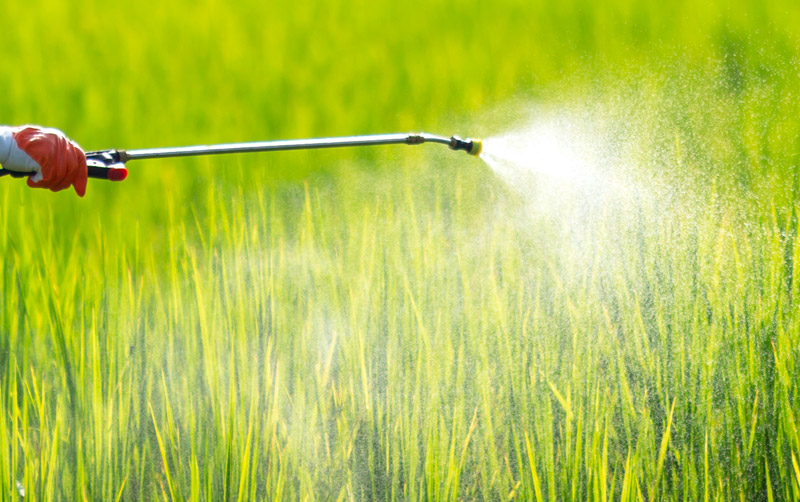
The reference specifications guarantee differential treatment in the process of registration of phytosanitary products for organic agriculture.
It was published this Monday (9) in the Official Gazette the normative instruction No. 25 that establishes four new reference specifications for phytosanitary products with approved use for organic agriculture. Compliance with specifications is a prerequisite for companies to be able to register in a different way biological products that will be used to combat pests and diseases in different crops.
With today’s publication, the country reaches the number of 40 reference specifications for authorized phytosanitary. The Map also analyzes about 200 application processes for establishing new reference specifications.
Each specification can generate multiple phytosanitary product records for different crops. An example is the first reference specification of Cotesia Flavipes, a biological agent used for pest control in sugarcane cultivation, which has served to register 27 biological products to date.
Of the four specifications published today, three are classified as open, allowing any company to have access to the active ingredient to formulate new biodefensives. Currently, 114 phytosanitary products with approved use for organic agriculture are registered with the Ministry of Agriculture, Livestock and Supply.
As of May this year, 77 Brazilian companies had bio-pesticide registrations with Mapa. Of this total, almost 70% of the companies were able to record biodefensives through the so-called organic route, which can only be accessed through the reference specifications.
According to the Reference Specification Service of the Ministry of Agriculture’s Agrochemicals and Related Products Coordination, 70% of registered biological products are in the hands of companies that used the organic route to obtain registration. Most of these companies are small.
“This organic route has provided small businesses today with market access with 60 registered products because they benefit from benchmark specifications. I mean, we increased the number of small businesses and products in the market. This is very important for the industry, ”said Tereza Cristina Saminêz, head of the Map Reference Specification Service.
The Ministry of Agriculture’s Coordination of Pesticides and the like has taken steps to further streamline and streamline the process of establishing new benchmark specifications to increase companies’ access to registration and the supply of low toxicity and low environmental impact products. for farmers.
One of the actions to speed up the processes is the adoption of a joint opinion elaborated more objectively by the three analysis bodies. Another measure is the improvement of existing normative instructions and those yet to be published. “We are looking to improve procedures to increase the flow of analysis,” said Tereza.
Organic Way
As with conventional pesticides, biological products are evaluated within the scope of pesticide legislation by the Brazilian Institute of Environment and Renewable Natural Resources (Ibama), the National Health Surveillance Agency (Anvisa) and the Ministry of Agriculture in relation to impact on the environment, human health and agronomic efficiency, respectively.
However, as they are considered of low environmental impact and low toxicity, the inputs destined to organic agriculture have different treatment in the registration process. Since 2009, Brazilian law provides that biological pesticides may follow a more agile stage, known as the organic route.
In this case, before being submitted to the registration process, the organic phytosanitary must meet the minimum requirements established in the so-called reference specifications, which bring the composition, the concentration of the active ingredients and the indication of use of the products, among other technical information. are raised in studies developed by the MAP team, research institutions or companies in the sector.
Specifications should be requested by interested parties from state organic production committees. If the biological product meets the specifications, it can proceed directly to the registration step without having to undergo all toxicological and efficiency studies, which ensures more agility of the process.
“Only those inputs that have been authorized for use in organic agriculture can be registered on this route. Establishing the reference specification is a step prior to the registration itself, ”explains Tereza Saminêz.
In the conventional way, the tests of Anvisa, Ibama and Mapa are required for all registered products, including biological ones. Detailed information on plant health legislation, reference specifications and the registration process for organic products is on the Map page.
Growth
Biological control is part of the so-called Integrated Pest Management (IPM) and allows the use of living or genetically engineered organisms to combat pests and diseases caused by common caterpillars, fly, nematodes (microscopic worms), mites and fungi and other agents. harmful to agriculture.
Organic products can be used in any crop, from fruits and vegetables to grains, sugar cane, among others. There are two types: macrobiologicals, which consist of the use of macroorganisms such as insects, mites and other natural enemies of pests; or microbiological, which are based on bacteria, fungi and viruses. Semi-chemical products, pheromones and plant extracts are also considered biological.
The market for biological products for the control of agricultural pests and diseases grew more than 70% in Brazil in 2018. The biodefensives industry moved last year $ 464.5 million, according to the Brazilian Association of Biological Control Companies.
Source: Map